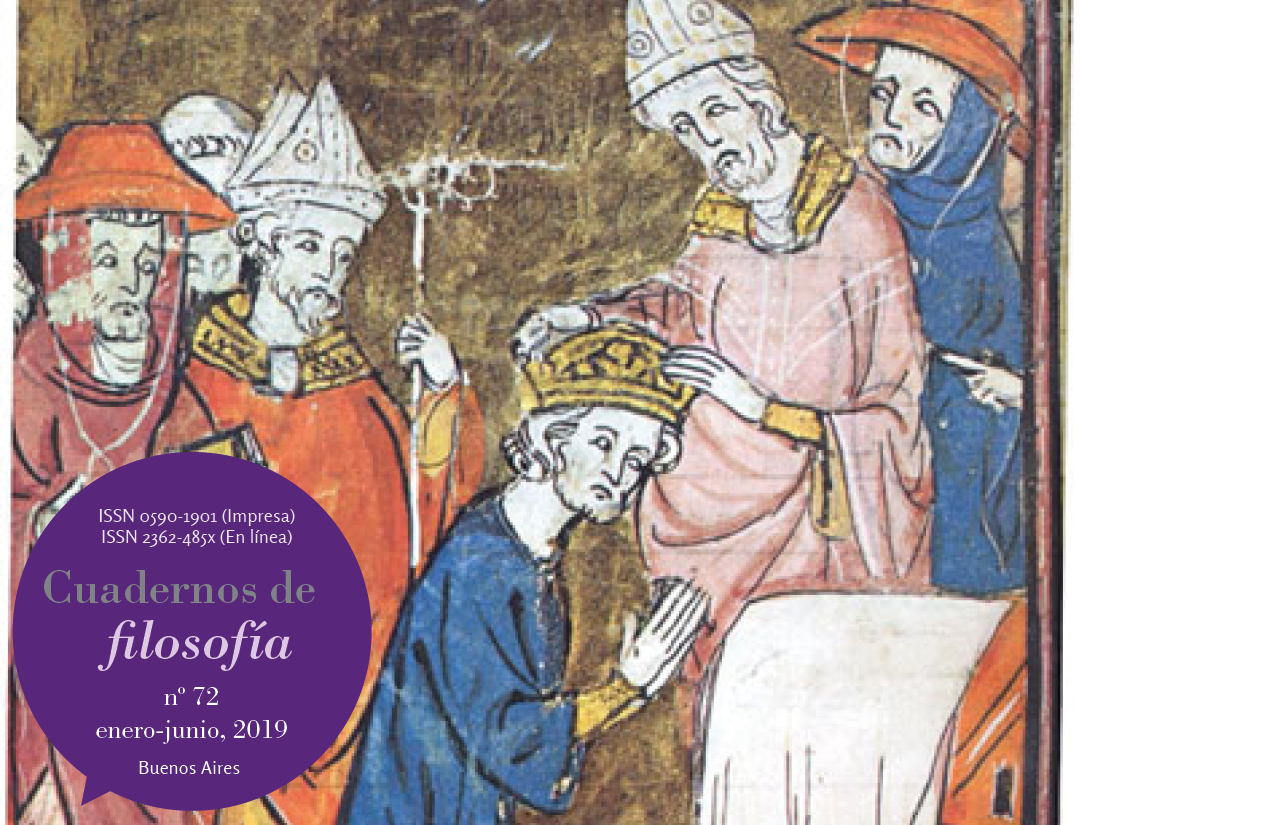Proclus, Dionysius, and Eriugenian Thought in the Expositio of Berthold of Moosburg
Abstract
One of the main purposes of the Expositio in Elementationem theologicam written by Berthold of Moosburg is to show that there is a substantial agreement between Proclus’ thought and that of Paul’s disciple, “Dionysius the Areopagite”. Strongly linked to this view, is the use Berthold does of a fundamental Augustinian distinction, namely the distinction between the ordo providentiae naturalis and the ordo providentiae voluntariae. Berthold understands that these do not oppose each other; in fact, essentially, they agree. The relation between the thought of Proclus and that of Dionysius can be understood on the base of that distinction. In his Elementatio theologica, Proclus writes from the point of view of the ordo providentiae naturalis, whereas Dionysius (generally) writes from the point of view of the ordo providentiae voluntariae. That is the reason why a dialogue can be built between Proclus and Dionysius. In order to do this, regarding Proclus’ metaphysical polytheism, Berthold employs as a mediator the Eriugenian teaching about the causae primordiales. This can be proved by paying attention to the way Berthold introduces his Eriugenian quotes, always as a Christian consideration of things according to the ordo providentiae naturalis, which, at the same time, is to be read as a Christian and philosophical interpretation of Dionysius’ thought.Downloads
Los autores/as que publiquen en esta revista aceptan las siguientes condiciones:
Los/as autores/as [traductores/as] conservan los derechos de autor/a y ceden a la revista el derecho de la primera publicación, con el trabajo registrado con Licencia Creative Commons Atribución-NoComercial-CompartirIgual 4.0 Internacional, que permite a terceros utilizar lo publicado siempre que mencionen la autoría del trabajo y a la primera publicación en esta revista.
Los/as autores/as pueden realizar otros acuerdos contractuales independientes y adicionales para la distribución no exclusiva de la versión del artículo publicado en esta revista (p. ej., incluirlo en un repositorio institucional o publicarlo en un libro) siempre que indiquen claramente que el trabajo se publicó por primera vez en esta revista.
Se permite y recomienda a los/as autores/as a publicar su trabajo en Internet (por ejemplo en páginas institucionales o personales).
Políticas de detección de plagio
La colaboración de los y las editores/as, autores/as y evaluadores/as de esta revista y la guía de ética de los procesos editoriales se rige por los Principios de transparencia y buena práctica en publicaciones académicas del Committee on Publication Ethics (COPE) disponible aquí.
Todos los artículos enviados a esta publicación serán supervisados mediante una búsqueda online.







